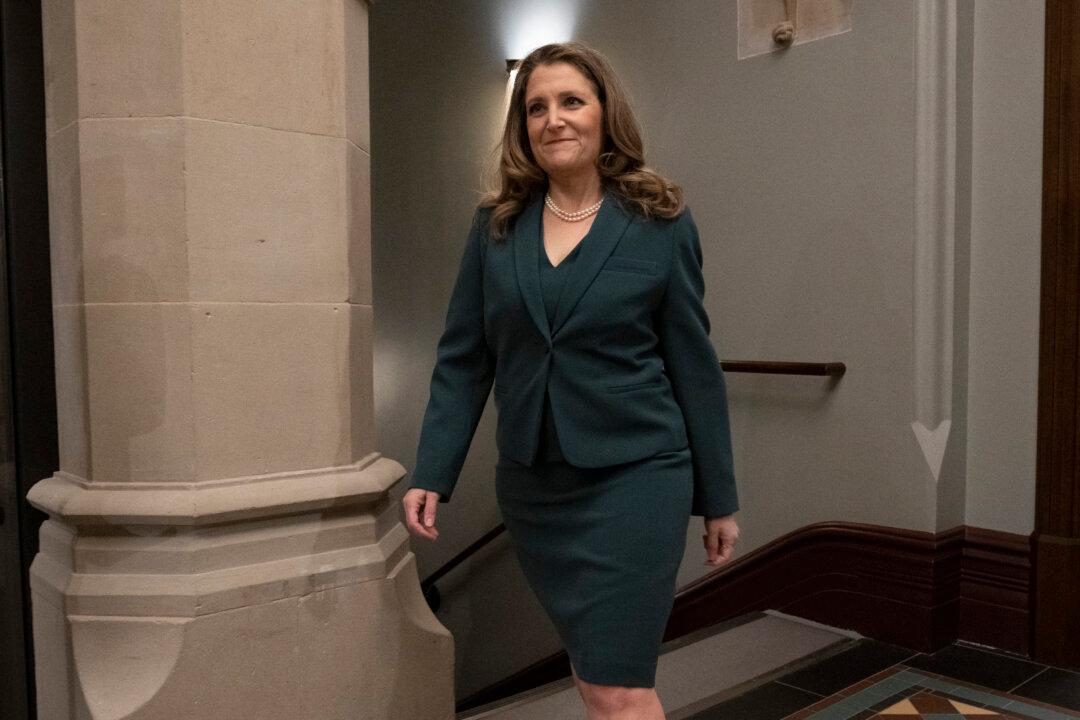OTTAWA—After a brief hint of a budget surplus in last fall’s fiscal update, Canada will once again be facing budget deficits for the foreseeable future.
The deficit will be $43 billion for the government’s fiscal year ending this month, $40.1 billion by March 2024, and is projected to improve to $14 billion in the red by March 2028. The fall fiscal update presented last November projected a fiscal surplus of $4.5 billion by March 2028.
But Canada continues to have the best debt dynamics in the G7 and the pandemic recovery in jobs and economic growth have also topped its peers, which Deputy Prime Minister and Finance Minister Chrystia Freeland touted today. She added that 830,000 more Canadians are working now as compared to when the pandemic began.
“Take a look at the deficit of other G7 countries,” Freeland said in a press conference in Ottawa on March 28 prior to the release of the budget.
The government’s “fiscal anchor” of an improving debt sustainability ratio—debt-to-GDP (gross domestic product)—continues to be met, even under an adverse scenario for the impending economic slowdown.
Canada has the lowest deficit and debt-to-GDP in the G7, Freeland said.
The debt-to-GDP ratio is 42.4 percent of GDP for March 2023 and it is projected to decline to 39.9 percent by March 2028.
The national debt is projected to grow over the next year to $1.319 trillion. It was $765 billion three years ago.
Paying for the Spending
Budget 2023’s three core priorities are investments in health and dental care, alleviating the cost of living crunch for lower-income Canadians, and providing tax credits to spur investment for Canada’s transition to a low-carbon future.
A senior government official told reporters that the government wanted to keep the budget focused on a limited number of big issues facing the country and “move the needle” on those.
The feds also confirmed a new grocery rebate for 11 million Canadians that will be delivered through the GST credit. The cost for this measure is an immediate charge of $2.475 billion.
Canada also announced a new dental care plan to benefit up to 9 million Canadians at a cost of over $13 billion over the next five years.
“I’m ready to take on anyone who says the federal government should not have done that,” Freeland said.
To support its green initiatives, the government unleashed a slew of tax incentives to generate more investment. But the government said it intends to have the private sector determine where to invest based on market signals.
The hard part is to get the right mix among pollution pricing, regulation, and incentives, said the senior government official.
“Capital investment is the key to success here,” he said, adding that $100 billion a year is needed and that Canada is currently investing between $15 billion and $20 billion a year.





